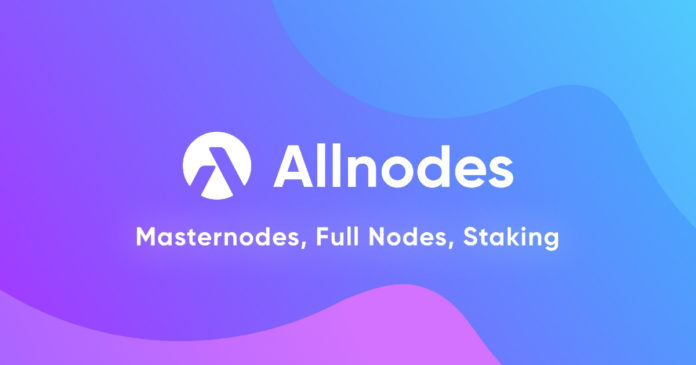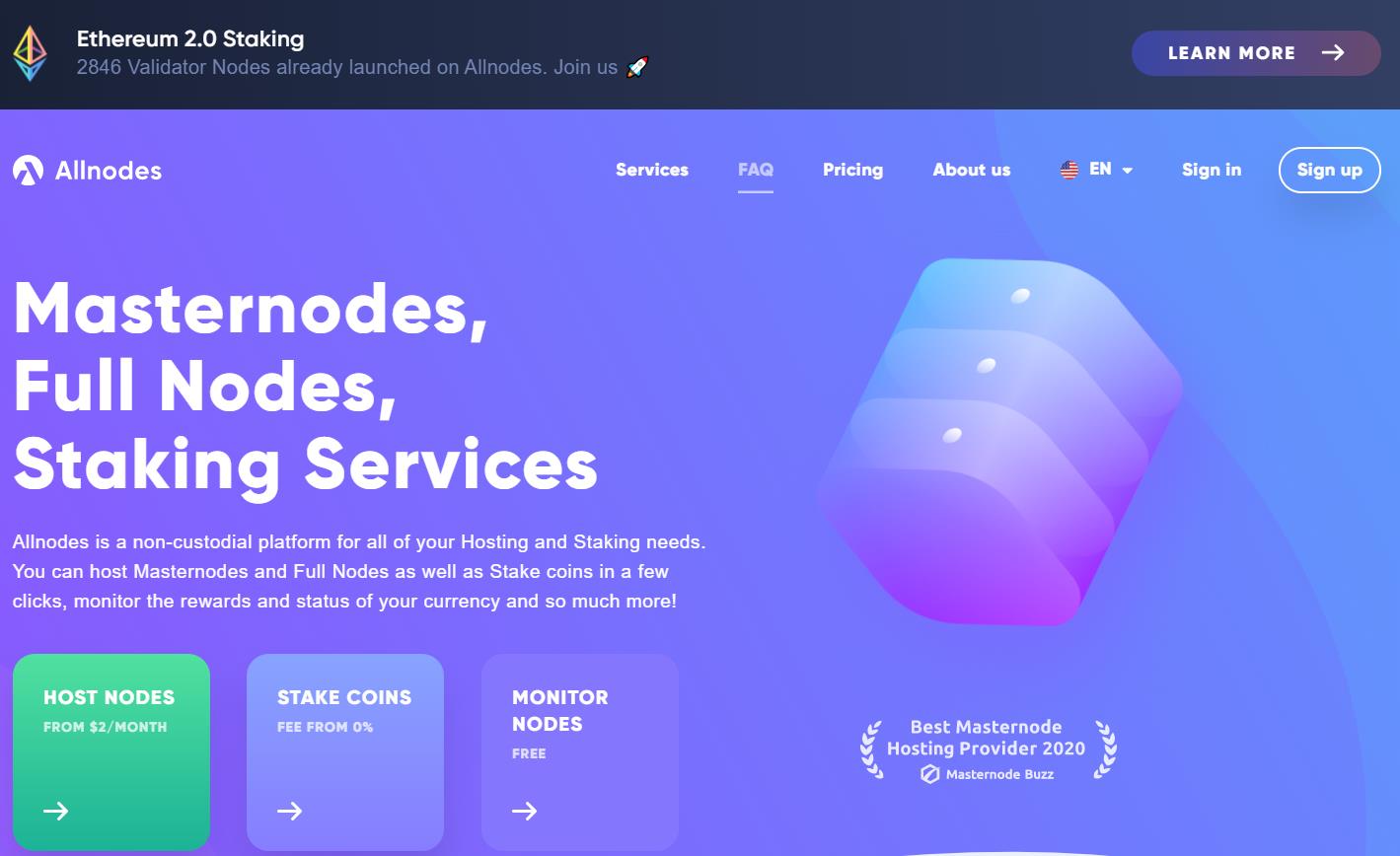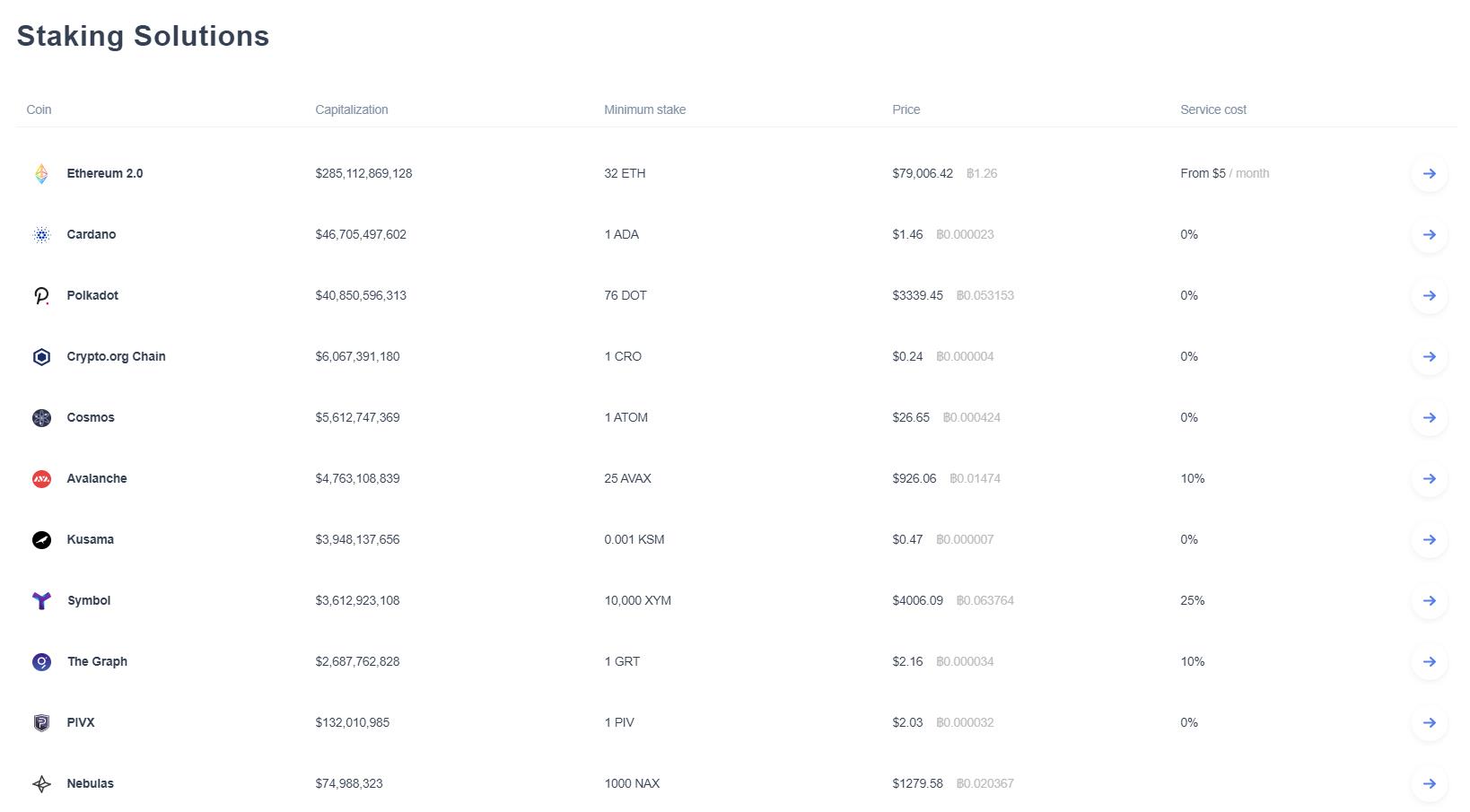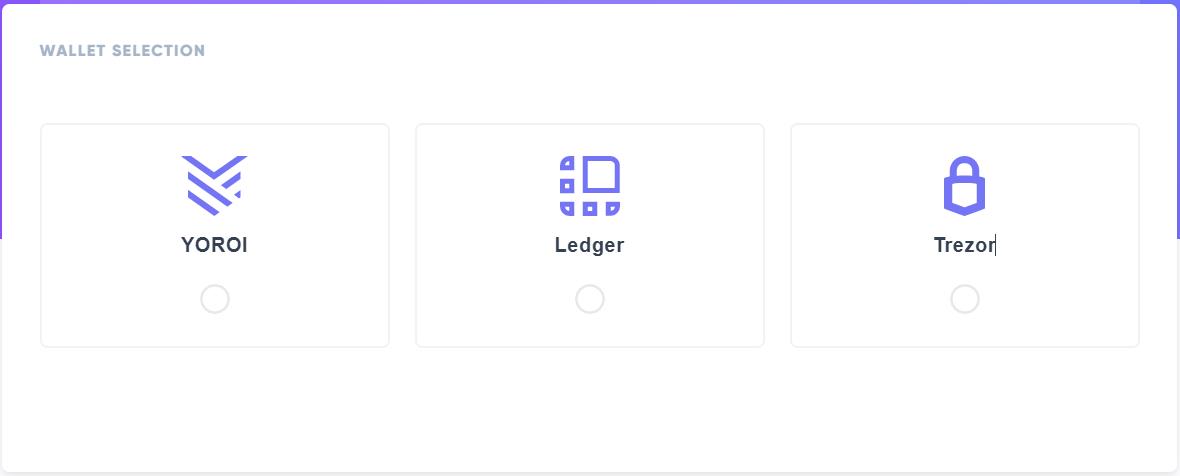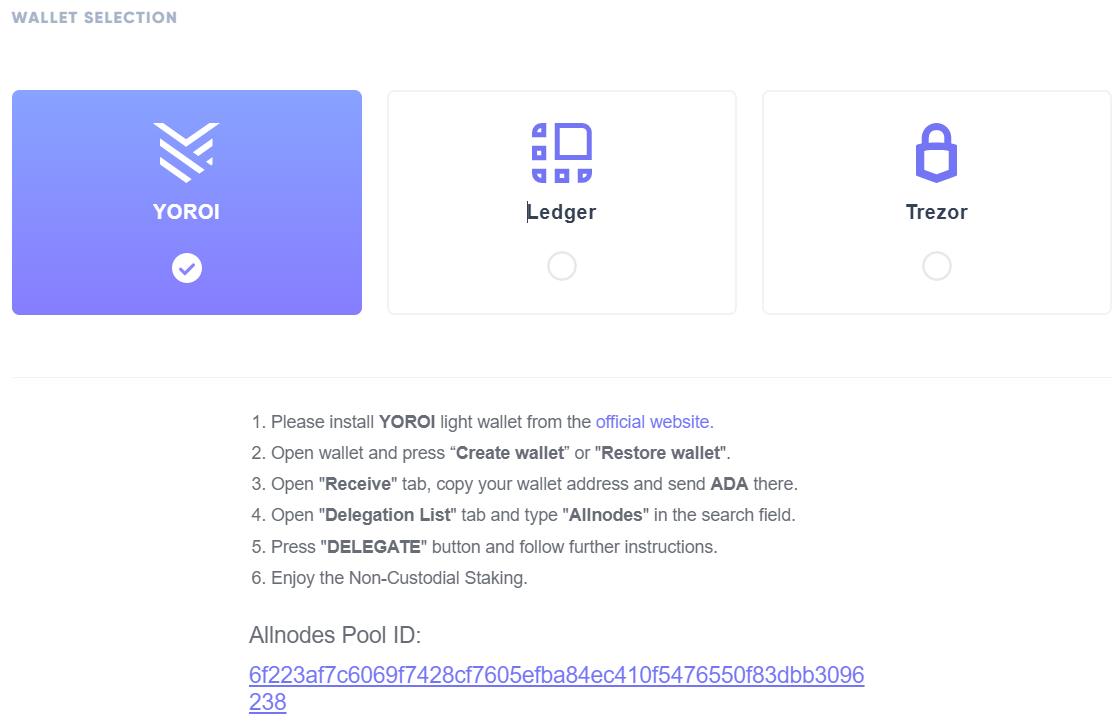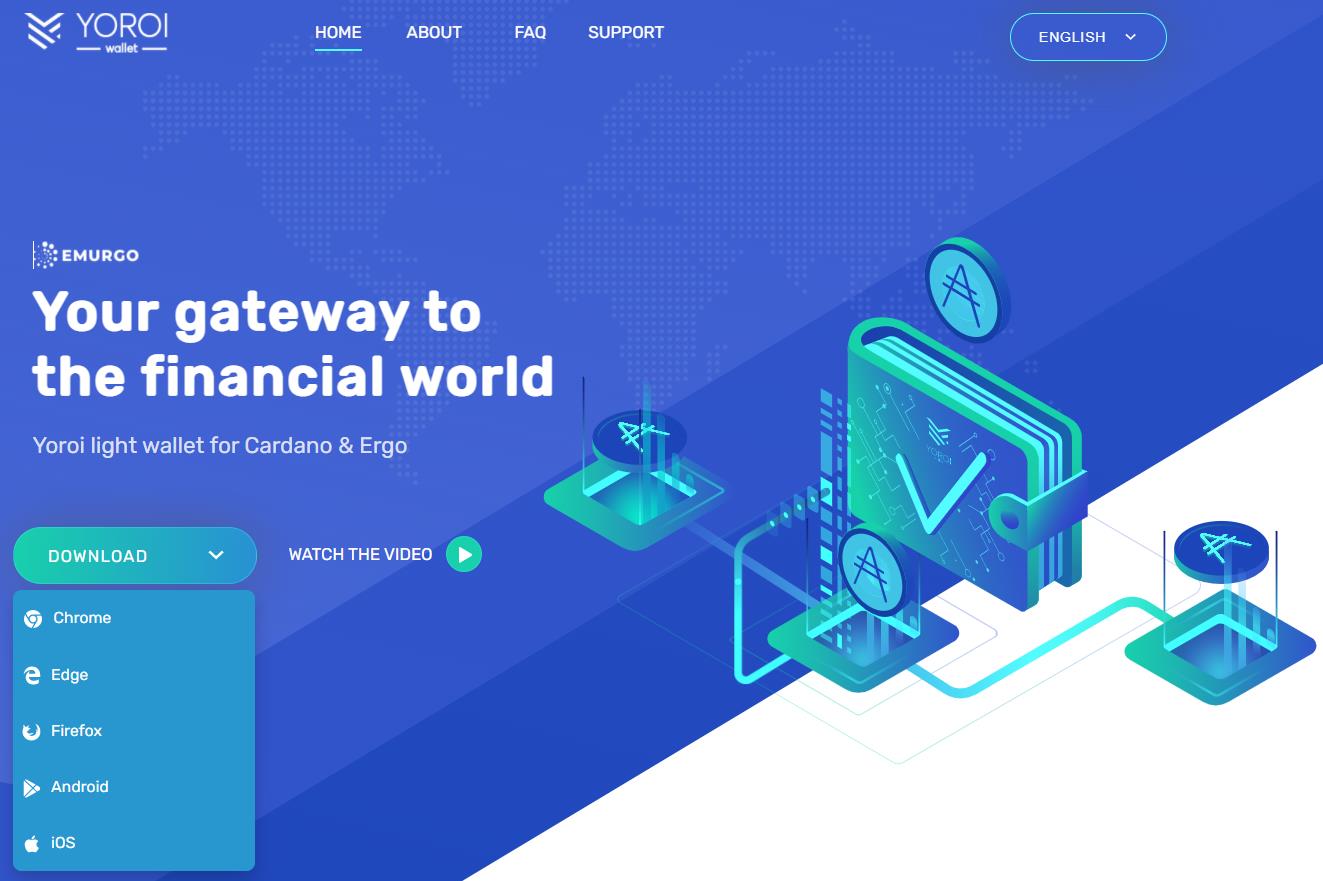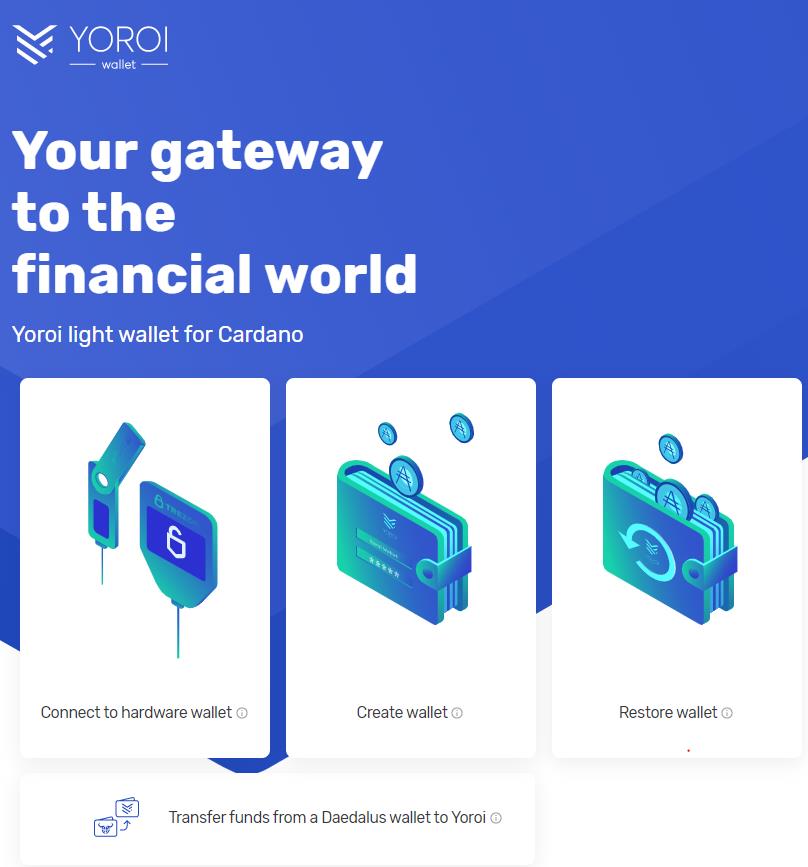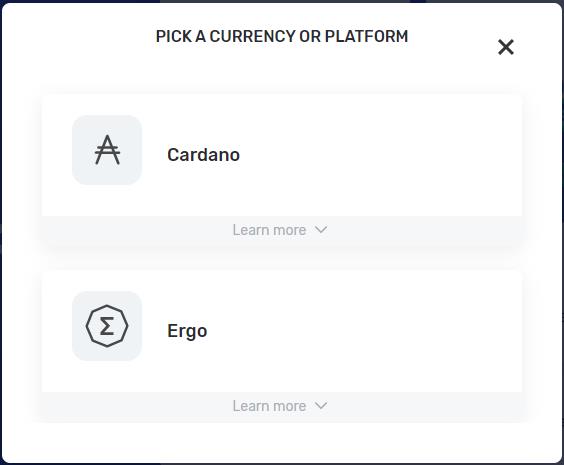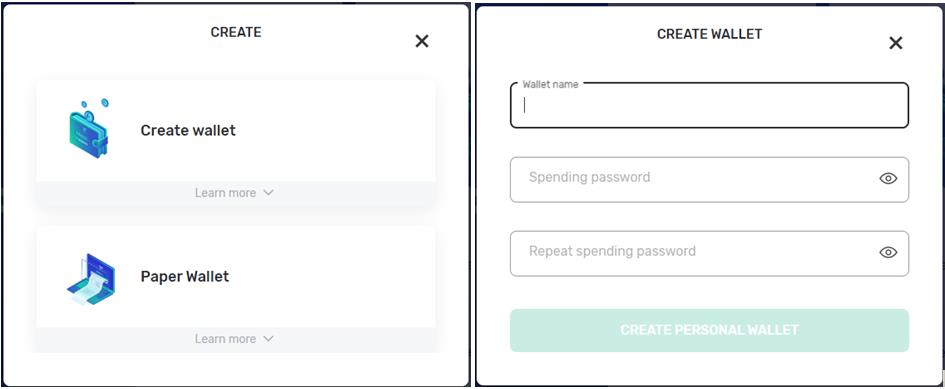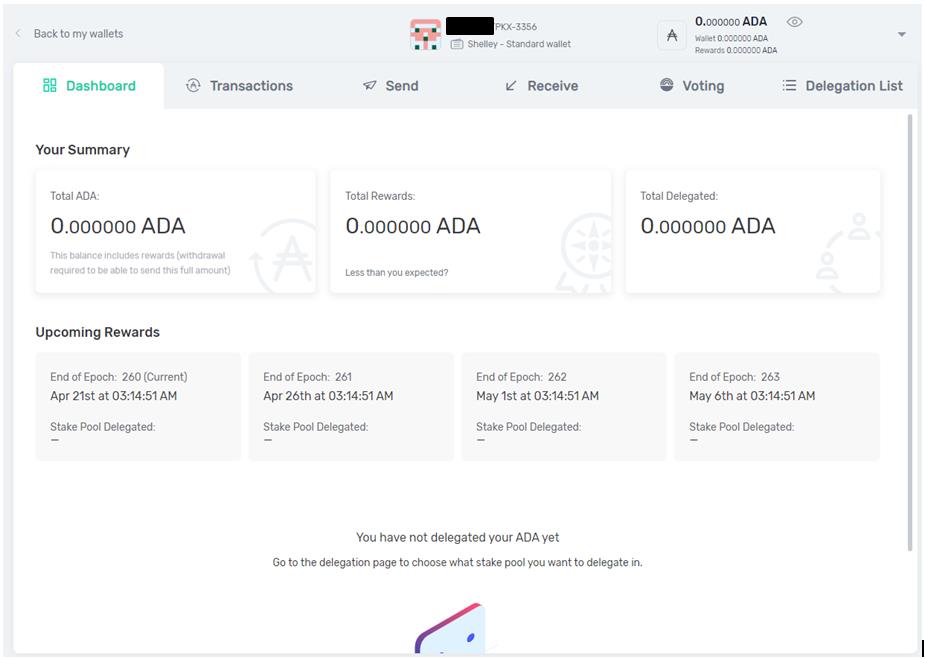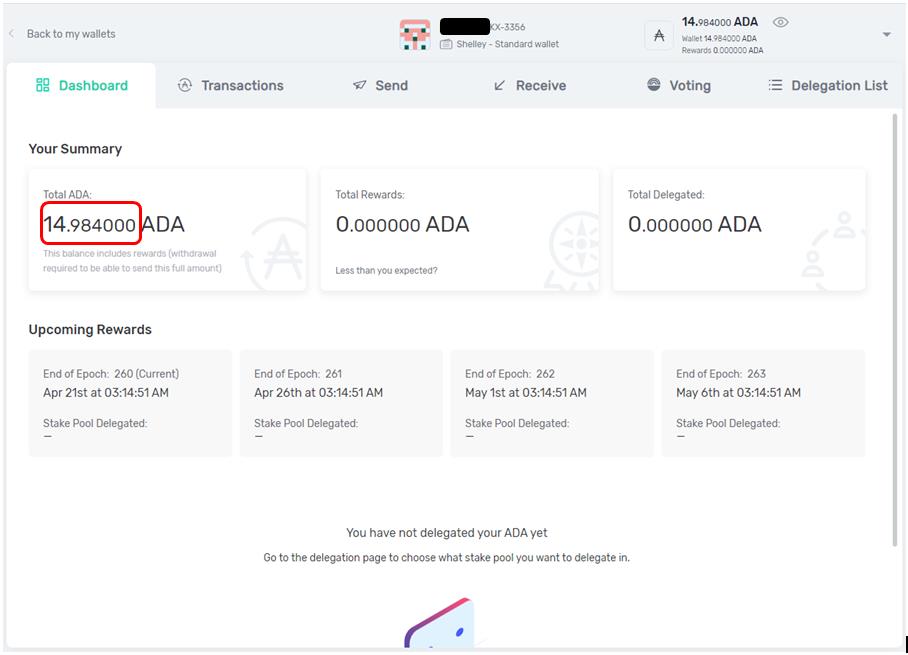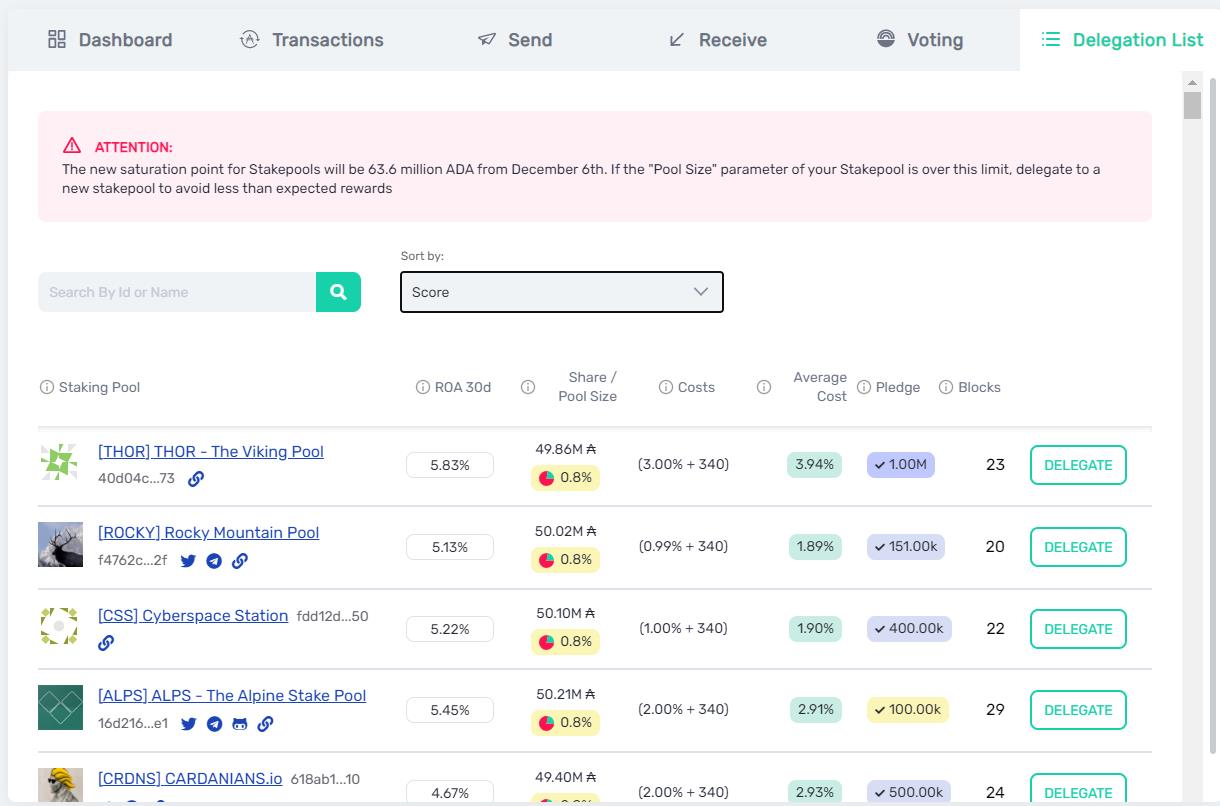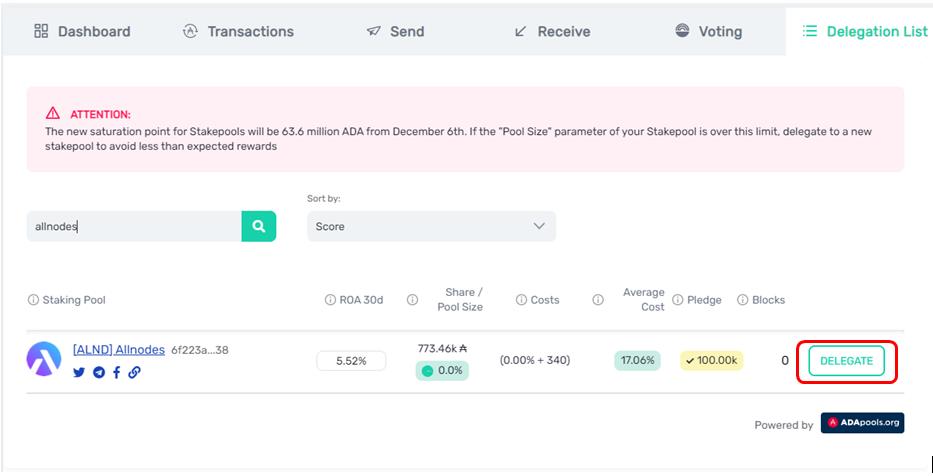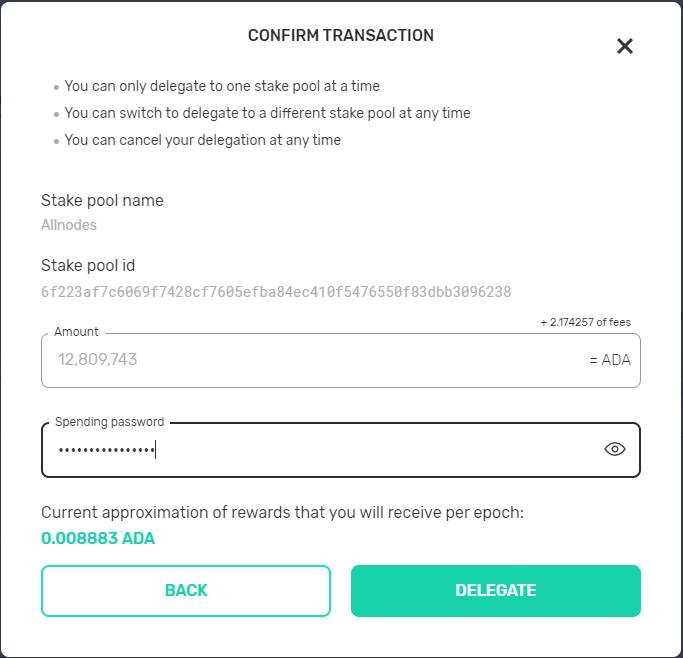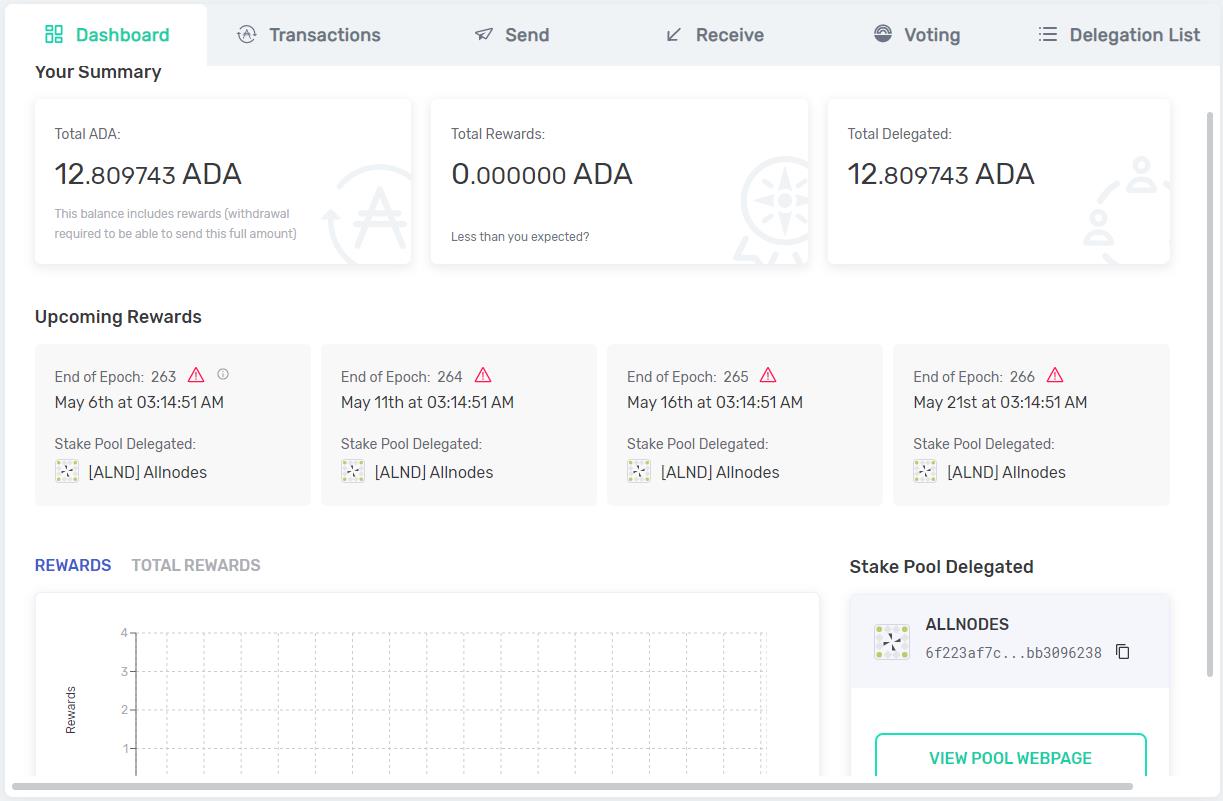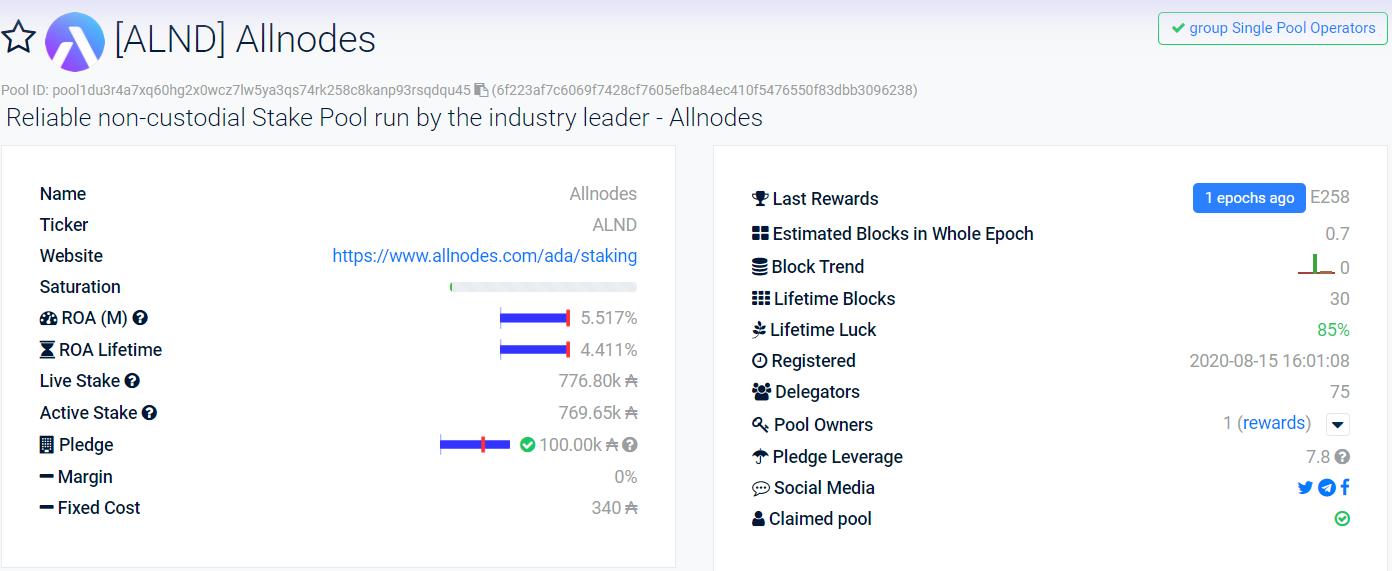Allnodes is a customer-centric, non-custodial, easy, and reliable platform that offers hosting and staking services. Users can use the Allnodes cloud service to host masternodes and full nodes. It also allows the users to stake their tokens and earn rewards. The platform is supported by one of the most reliable VPS hosting providers currently available in the market. Network nodes are hosted on DigitalOcean and Linode servers that guarantee 99.90% uptime SLA. It has also won the “Best Masternode Hosting Provider” award from the prestigious 2020 Masternode Community Awards.
Founded in 2017 in Los Angeles, California, Allnodes currently supports 14,062 hosted nodes with a total valuation of $906,998,020.
The platform offers 24/7 backup and customer support. It has built-in official Telegram, Slack, and Discord bots that provide updates on node performance to the users.
Table of Contents
Platform Features
Allnodes provides the following hosting and staking services to its users:
-
Masternodes
Set up master nodes and earn attractive rewards. Users can use the multilayer monitoring systems that help them in backup and remain online at all times.
-
Full Nodes
Allnodes provides full node services in 15 cities worldwide. Users can opt for the services to set up a blockchain full node that offers fast, unlimited, real-time updates and maximum up-time.
-
Staking
Allnodes provides staking services on various tokens like Ethereum 2.0 (ETH), Cardano (ADA), Polkadot (DOT), CRO, Avalanche, Cosmos, Symbol, Kusama, The Graph, PIVX, and Nebulas. Users can stake these tokens and earn attractive rewards. Some of these tokens have zero service cost charges.
-
Address Monitoring
Users can monitor their master node and the staking rewards of any address for the supported tokens.
-
Allnodes Bot
In-build bots that update the user on node performance through Telegram, Discord, and Slack.
Usage Guide (Staking)
To use the Allnode platform, visit their website.
The landing page looks like this.
You can easily see the list of services provided by the platform on their homepage. In this article, we will see how a user can stake their tokens using Allnodes.
To stake any token, click on the Stake Coin tab.
Choose cryptocurrency
You can see a list of supported cryptocurrencies along with the service cost charged by the platform. Choose the currency that you wish to stake with the platform.
For this article, we have decided to stake our Cardano tokens.
Select Wallet
You can stake your Cardano (ADA) tokens stored in any of the below wallets:
- YOROI
- Ledger (hardware wallet)
- Trezor (hardware wallet)
We want to connect with our Cardano native wallet, i.e., the YOROI wallet.
Select this option.
The page will display the complete list of steps that a user needs to follow to stake their tokens.
Install YOROI
If you are an existing Cardano user and use the YOROI wallet, then you can skip the wallet installation part. You can directly go to the Delegation step.
If you are a new Cardano user, then you have to first install the wallet application.
Click on the link mentioned in the webpage above, and it will redirect you to the official YOROI website.
Click on the Download button. The application currently supports the following operating systems and browsers:
- Chrome
- Edge
- Firefox
- Android
- iOS
Select your desired option and download the application. We have selected Google Chrome (browser extension), and it will redirect us to this page.
Click on Add to Chrome, and the wallet application icon will be added to the browser extension.
Set up Wallet Application
Click on the YOROI icon on your browser extension to set up your account.
The installation wizard will start. It will redirect you to the page and ask you to select the language.
Next, the application will give you the option to choose the application complexity. Depending upon your crypto knowledge, choose the kind of wallet setup that you want to see. This step is very important. We recommend you start with the simple version if you are a new user. This will hide all the unnecessary complex information that you might not need at the moment. You can always shift from Simple to Advanced by going to the wallet settings tab.
So for now, we are choosing a Simple wallet setup.
Complete the installation process. Once the application is installed, it gives you four options for wallet setup:
- Connect to Hardware Wallet
- Create Wallet
- Restore Wallet
- Transfer Funds From a Daedalus Wallet to YOROI
Create Wallet
If you are a new user, you can choose this option to create a new YOROI wallet for your Cardano tokens.
Next, you need to select the blockchain. YOROI supports two blockchains:
- Cardano
- ERGO
Select option 1.
Click on the Create Wallet option. The application will ask you to provide the wallet name and password and show you the backup phrase that you need to store safely for future use.
Once this is done, a blank YOROI wallet is successfully created for you.
You can see the below page now.
Transfer ADA
We have some ADA in our exchange wallet that we want to transfer to our YOROI wallet.
To receive the ADA tokens in your YOROI wallet, you need to get the public address. You can check your receiving address from the Receive tab.
Now log into your exchange account and click on withdraw against the ADA token.
Enter your receiving address in the Recipient Address field and confirm the transaction.
Once the transaction is successful, you can see the ADA tokens in your YOROI wallet.
Delegation
To stake your tokens, go to the Delegation List tab in your YOROI wallet. You can see the list of pools where you can delegate your tokens.
To delegate the token via Allnodes, search by the given name and click on Delegate.
Important: Before delegation, check the pool ID of the service provider correctly. You can also confirm the authenticity of the pool and its corresponding ID from the ADApools website that lists the details of all pool operators in Cardano.
Enter the amount of ADA tokens that you wish to stake. The application will show you the reward that you will receive per epoch.
Confirm the process by clicking on the Delegate button.
You can see your delegated token details from your dashboard.
To get more details about the Allnodes pool operator, users can either click on the pool ID appearing on their wallet or search for the pool operator on the ADApools page.
At any time, users can cancel their delegation or switch to a different stake pool to delegate their tokens.
Social Presence
Conclusion
Allnodes aims to eliminate the financial, technical, and infrastructure barrier for the normal user to enter into the crypto world. Users now no longer need to worry about the hardware cost, internet connection, or deep technical understanding to run a node. One can use the easy, simple, and automated node hosting service at a very low cost. Node hosting requires a little bit of technical knowledge, but staking is pretty simple and easy and can be completed by following few steps. The platform charges zero service costs for their staking facility on some of the tokens. All these benefits will help Allnodes to set itself as a leading hosting service provider and will increase its user adoption as more users join the blockchain industry.
Resources: Allnodes
Read More: Blank: A Privacy-Focused Browser Extension Wallet

























